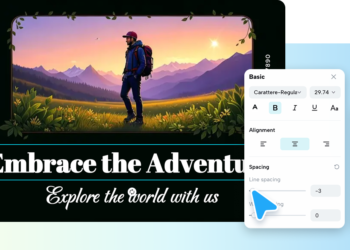Online communities used to be gathering places where everyone could come together to share ideas have real conversations, and, why not, form friendships and connections. Not long ago, we relied on internet forums and message boards such as Reddit, Facebook groups, and Discord.
However, recently, these communities have started to fade away. The trust that bonded them is weakened and replaced by content pushed by algorithms. Commercialisation and AI-generated interactions destroy it. Yet, some people believe that AI, this powerful tool that can create text, images, and even realistic conversations, could bring back the spark to online communities.
The truth is that AI can’t ever replace real human connections. Instead of fixing the problem, this technology can actually make things worse by reducing interaction and trust.
With the help of this article, we will highlight why online communities are actually struggling and what are the solutions to create better digital spaces. As you’ve guessed, AI isn’t the answer. So, let’s roll!
Real Online Communities Are Closer To The Edge
One of the main reasons why online communities are struggling is that people don’t trust them anymore. The guilt is passed on to all AI-generated content, bots, and fake images that are circulating around. It has become really hard to tell what’s actually real and what’s not. Even social media is full of low-effort AI posts, making it pretty difficult to have meaningful conversations.
Take a look at Reddit as an example. Back in 2023, users protested when the platform changed the rules, making it harder for moderators to use third-party tools. Many users have seen this movement as a treason act, as if Reddit is prioritising corporate interests over its own community.
Another platform that has become chaotic is X, the former Twitter. Many say that the platform is now full of misinformation and AI-generated content created for engagement rather than real conversations.
Algorithms Over Everything
Another issue is that social media platforms are no longer a place for conversations. What you see today is content of all kinds that generates the most clicks and reactions. You no longer see posts from friends or communities that interest you. Instead, users receive viral content meant to keep them scrolling.
If you look at Facebook and Instagram today, you’ll see that they have adopted TikTok-style feeds. They promote posts over personal connections. Even YouTube and Twitch, which had massive community engagements, have adopted the same style.
Forums and Niche Communities Start to Disappear
Formus and clogs were the main sources of online discussion before social media. Websites and personal blogs provided spaces for actual conversations where users had more control. However, when all social media companies grew, many of these smaller communities started to disappear or become commercialised.
For example, Reddit was just a hub for diverse discussion, yet today, it’s more focused on profit. Also, Discord is pretty fragmented, with many communities locked behind private networks.
Basically, the intercept is no longer open to everyone, it feels, as it moves toward corporate-controlled interactions.
Why AI Can’t Fix the Problem?
Nowadays, many AI tools can imitate conversations. However, they do not actually offer genuine answers to your deep questions. While AI can help summarise discussions or answer questions, it can’t have real, personal, or emotionally meaningful interactions as humans can. At least, not yet.
If you look at the answers provided by AI tools, they often feel unnatural. Most times, players will feel more disconnected rather than engaged when interacting with the content.
AI Struggles with Emotion and Context
Even with all the updates and improvements, AI still lacks emotional intelligence. It still has a lot of catching up to do as it doesn’t fully understand how people actually interact with each other. AI doesn’t understand cultural references, humour, or personal experiences the way people do.
Trust Issues Are On The Rise
If you’re wondering why AI can’t fix community problems, it is because of trust. People are already sceptical about online content. There are so many deepfakes, AI-generated comments, and fake news that make it harder to determine what is real.
Thus, instead of bringing people together, AI risks making online communities feel even more unnatural.
As soon as people suspect they are talking to bots instead of real people, that connection and trust disappear. It is not the same thing to use a chatbox and ask a bot about casino promo codes at an online casino as to talk to an actual agent who can offer personalised answers. People will always appreciate a genuine connection.
What are the Alternatives?
We already mentioned AI can’t replace human connection. However, it can be a useful tool for managing communities. The tool can help us create safer communities by reducing toxic behaviours, summarising long discussions, and making communities more accessible. When thinking of accessibility, we consider features such as real-time translations and voice-to-text. These features can really be helpful in deep conversations.
To everyone’s surprise, there are already online spaces that have successfully adapted AI to their platforms without losing human interaction. For instance, Discord servers use AI moderation to point out harmful content while letting human moderators make the final call.
Human-Led Communities Are What Really Matters
In this digitalised world, we should focus on ways to build stronger communities through human-led efforts. In fact, people have already started to avoid purely digital spaces.
There’s this new trend of digital detox and in-person meetups shows that people are looking for more meaningful connections.
Several online groups encourage face-to-face interactions, workshops, and all sorts of local meetups to change community dynamics.
So, What’s Next For Online Communities?
We live in a world where online communities are getting closer to their end. Not even technology like AI can save it. Even using it in moderation as a tool can’t replace the trust, authenticity, and real connection that make these communities meaningful.
We need better online space, and for that, we need to step away from algorithm-driven content and focus more on human efforts. Also, if we want these online communities to thrive again, we must prioritise their actual purpose, which is human connection. The future of digital spaces should be shaped by people and not machines.
David Prior
David Prior is the editor of Today News, responsible for the overall editorial strategy. He is an NCTJ-qualified journalist with over 20 years’ experience, and is also editor of the award-winning hyperlocal news title Altrincham Today. His LinkedIn profile is here.




![7 Best POS Software in the UK [2026 Edition]](https://todaynews.co.uk/wp-content/uploads/2026/02/7-Best-POS-Software-in-the-UK-2026-Edition-360x180.png)























































![7 Best POS Software in the UK [2026 Edition]](https://todaynews.co.uk/wp-content/uploads/2026/02/7-Best-POS-Software-in-the-UK-2026-Edition-350x250.png)
















